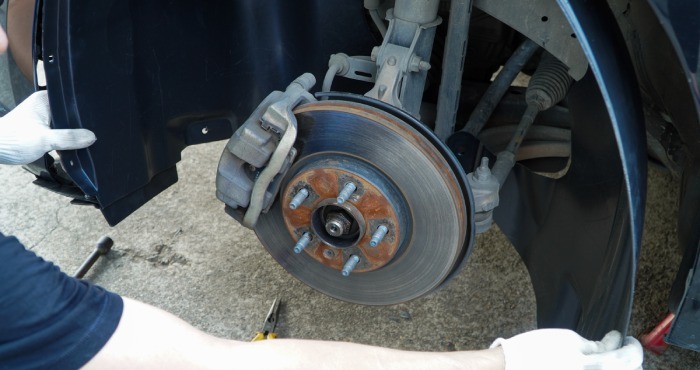Purchasing a new car represents a significant financial commitment, and it can be extremely disheartening to find that your Ford has recurring issues. Ongoing defects can negatively impact your driving experience, potentially resulting in expensive repairs and raising safety concerns. Thankfully, California Lemon Law Lawyer offers vital protections for consumers facing such challenges, holding manufacturers accountable for faulty vehicles. It is important to understand your rights under this legislation in order to achieve a just resolution.
If your Ford continues to exhibit problems despite several repair attempts, pursuing a Lemon Law claim may be the most effective option. This process can be intricate, necessitating appropriate documentation and legal knowledge to enhance your chances of a favorable outcome. Seeking assistance from a Lemon Law attorney who specializes in this area can be invaluable, as they can help navigate the legal process, negotiate with the manufacturer, and aid you in obtaining either a refund or a replacement vehicle.
Understanding California’s Lemon Law
The Song-Beverly Consumer Warranty Act, often referred to as California’s Lemon Law, aims to safeguard consumers who buy or lease new and used vehicles that are backed by the manufacturer’s new vehicle warranty. This legislation encompasses various types of vehicles, such as cars, pickup trucks, vans, SUVs, along with the chassis, chassis cab, and drive train of motor homes. Additionally, it includes dealer-owned vehicles, demonstration models, and those acquired for business purposes, as long as specific criteria are fulfilled.
For a vehicle to be eligible under the Lemon Law, it must exhibit problems that greatly impact its functionality, worth, or safety. These defects should continue to exist even after several attempts at repair by either the manufacturer or an authorized dealer. If the issues are not fixed and still hinder the vehicle’s operation, the owner may have a valid Lemon Law claim.
Generally, a vehicle is deemed a “lemon” if the same defect has been attempted to be repaired multiple times without success, or if it has been inoperative for a significant duration, usually 30 days or longer. This prolonged period of inactivity indicates that the manufacturer has not adequately addressed the issue, rendering the vehicle unreliable or unsafe for the owner.
Common Defects in Ford Vehicles
Like vehicles from other brands, Ford cars may encounter several types of defects. Frequently noted problems include:
Engine Troubles:
The engine might experience stalling, misfiring, or complete failure, which can significantly impact performance. Such issues may arise from defects in the fuel system, ignition malfunctions, or general mechanical deterioration.
Transmission Problems:
If there are delays in gear shifts or gears slip, it can create an unpredictable and potentially hazardous driving experience. In extreme situations, the transmission could fail altogether, rendering the vehicle unusable.
Electrical Issues:
Malfunctions in wiring or battery depletion can lead to sudden loss of power. Additionally, complications with onboard computers can result in erratic behavior of the vehicle.
Brake System Malfunctions:
If your brakes are unresponsive or produce loud squeaking sounds, it may be a sign that parts need replacing. When brakes wear out too soon, the ability to stop effectively is compromised, heightening the likelihood of accidents.
Steering Issues:
Struggling to steer or hearing strange sounds could suggest there are problems with the power steering mechanism. Additionally, if you notice vibrations in the steering wheel, this might indicate alignment or suspension troubles.
If you encounter any of these problems repeatedly, even after several repair efforts, your Ford might be considered a lemon according to California legislation.
Steps to Filing a Lemon Law Claim in California
Keep a Thorough Log of All Problems and Fixes
Ensure that you have meticulous records of every issue faced with your vehicle. This should encompass copies of repair receipts, invoices, and any communication with the dealership or manufacturer. Having extensive documentation is crucial for substantiating your claim.
Allow the Manufacturer Sufficient Opportunities for Repairs
Prior to initiating a claim, it is essential to give the manufacturer or their authorized representatives a fair chance to fix the defect. Although the law does not define a specific number of attempts, if the problem continues after several repair efforts, or if the vehicle has been out of commission for a total of 30 days or more, you may qualify for lemon law protections.
Seek Guidance from a Lemon Law Attorney
Dealing with the intricacies of Lemon Law claims can be difficult. Engaging with a knowledgeable Lemon Law attorney can help clarify the viability of your case, aid in collecting the necessary documentation, and support you throughout the claims process.
Submit Your Lemon Law Claim
With the help of your attorney, you can initiate a Lemon Law claim. This usually requires filling out and submitting a “Demand for Arbitration” form, which includes details about your vehicle, the issues you’ve encountered, and the repair attempts you’ve made. Your attorney will make sure that all required documents are attached and that the claim is submitted accurately.
Participate in Arbitration or Legal Proceedings
Once your claim is submitted, the manufacturer might propose a settlement, or the matter could advance to arbitration or court proceedings. Your attorney will advocate for your interests during this process, working to achieve a positive result, which could involve getting a replacement vehicle, a refund, or monetary compensation.
The Role of a Lemon Law Attorney
Although you can initiate a Lemon Law claim on your own, enlisting the help of an experienced lawyer can greatly improve your likelihood of achieving a favorable outcome. A lawyer with expertise in Lemon Law will:
Assess Your Situation:
Thoroughly review all relevant documents, such as repair logs and warranty information, to gauge the validity of your claim. Take into account the context of your vehicle’s issues and whether they align with legal standards. A detailed assessment lays a solid groundwork for your case and enhances your likelihood of a favorable outcome.
Manage Correspondence:
Skillfully navigate all communications with the manufacturer and their legal representatives to safeguard your rights. Thoughtful responses to their questions can help avoid misunderstandings or setbacks in your claim process. Clear and professional communication reduces anxiety and helps maintain a steady progression in the proceedings.
Engage in Settlement Discussions:
Put in the effort to obtain the most favorable outcome, whether that means reaching a reasonable agreement or pursuing legal avenues. Effective negotiation strategies can result in compensation that adequately addresses your financial setbacks. Be ready to escalate your case to court if needed to secure a fair resolution.
Adhere to Legal Requirements:
Abide by all necessary legal protocols and timelines to avoid having your claim rejected. Failing to complete essential tasks or adhere to deadlines may compromise your case and prolong the process. Keeping everything organized and staying knowledgeable will help maintain the validity of your case and facilitate a smoother progression.
Numerous attorneys specializing in Lemon Law operate on a contingency fee arrangement, which means they receive payment solely if you succeed in your case. Furthermore, according to California Lemon Law, if your claim is victorious, the manufacturer might be obligated to pay for your legal fees.
Recent Developments in California’s Lemon Law
Keep Abreast of Legal Developments:
New legal decisions can greatly influence your rights under the Lemon Law, so it’s crucial to remain knowledgeable. Being aware of these updates will guide you in properly pursuing a claim.
Effect of California Supreme Court Decision:
A recent ruling has changed the application of Lemon Law protections for car buyers throughout the state. This decision has transformed legal interpretations that had stood for many years.
Restrictions on Warranty Protections:
The court determined that Lemon Law safeguards are applicable solely to warranties issued during the purchase. As a result, many vehicle owners may find themselves at risk if they depend on extended or aftermarket warranties.
Heightened Risks for Vehicle Purchasers:
In the absence of the previously extensive protections, buyers could incur significant repair costs without the option for refunds or replacements. This change could leave millions of consumers facing potential out-of-pocket expenses for vehicle defects.
Significance of Written Warranties:
To safeguard their interests, car buyers in California should ensure they obtain a detailed written warranty when making a purchase. Having explicit documentation can prevent potential legal issues down the line.
Dealing with the intricacies of filing a claim under California’s Lemon Law can be difficult, especially for those who own Ford vehicles. Hiring a knowledgeable Lemon Law attorney In San Diego can greatly improve your likelihood of achieving a favorable outcome, as they offer valuable expertise throughout the entire process. It’s crucial to know your rights, keep thorough records of all pertinent information, and swiftly tackle any issues with your car in order to support your claim effectively.
With appropriate legal assistance, you can champion your rights and may even obtain compensation or a replacement vehicle. By staying informed and taking initiative, you can make sure that your experience with your Ford is a positive one, despite any initial challenges.









